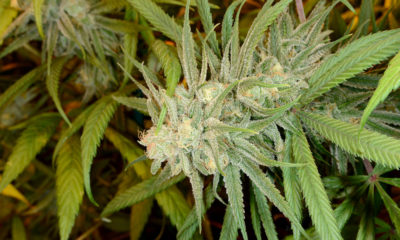Lone Cannabinoids: THCA
The process for THCA extraction isn’t widely known, as extraction artists are notoriously secretive about their methods.
The psychoactive effects produced from ingesting cannabis are a result of not just THC, but of THC in synergy with hundreds of other cannabinoids present in the plant known as the “entourage effect.” The pure THCA experience can therefore leave much to be desired for the casual cannabist.
“It’s interesting, but it’s only one compound and medical marijuana is medical because of all the cannabinoids, not just one,” says Matt Archibald, President of Botanical Process Solutions, a company that supplies supercritical CO2 extraction systems complete with recipes designed to produce consistent, reproducible results.
For anyone curious about extracting THCA, answers are just an online search away. German researchers published a scholarly article in the “Journal of Chromatography” in 2011 that discusses, in detail, two procedures for isolating THCA.
“Both use flash chromatography and require nasty solvents like pentane or butane,” Archibald explains. “But anyone with a chemistry background could do it just following the directions in the paper.”
Elaborating on the process, Archibald says that the German scientists started with kief that they then dissolved in a solvent—in this case, pentane, which is related to butane but with a higher boiling point. They treated the kief with activated carbon to remove the terpenes and other compounds and placed heat-treated silica gel in a column (essentially a tube with a hole in bottom), added the purified kief in at the top, put a flask underneath, then poured pentane mixed with another chemical over it. THCA sticks to silica gel to a certain degree, he says, so compounds that don’t stick come out first. Lastly, more and more modifiers are added to extract the rest of the THCA.
“It’s not a complicated process, although flash chromatography is a very slow one. It’s just dangerous because you have to use pentane,” which is highly combustible like its butane/BHO cousin.
For those concerned about solvents in their concentrates, Archibald says the evaporation process theoretically should get rid of residual solvents, as done with pharmaceutical extractions. However in the cannabis world, few hash makers have the same refined expertise as pharmaceutical companies.
BHO is likely what extract artists are using to isolate THCA, using previously extracted butane hash oil as base material, according to Dan Polking, a lab tech at Analytical 360 in Seattle, who says he’s tested THCA concentrates at 98 percent and higher.
“I think some people start with BHO, then add another solvent to purify it further,” he says.
However, Archibald believes there is a safer way to isolate THCA.
“You can do something similar with CO2 by adding modifiers and putting the material through a silica gel column. CO2 is safe. Pentane isn’t.”
Archibald says the supercritical extraction systems he supplies are so dialed in that “users can literally download a recipe for a certain type of extract from our website and get the same results time after time.” He explains that the CO2 process can isolate other specific cannabinoids, which could have even greater implications for the medical cannabis industry.
“After the CO2 extraction, there are separators. The separators can be adjusted to favor one cannabinoid over another,” he explains.
Because cannabinoids are so similar, the process of getting only one cannabinoid per separator is difficult, he says, but not impossible. However, such single-cannabinoid extracts probably won’t impress the chronnoisseur.
“Pure THCA doesn’t have much appeal because it doesn’t have the terpenes,” Archibald says. “There’s research that shows how important terpenes and CBD are to the whole experience,” and no one even knows how the lesser studied or unidentified cannabinoids weigh in. “Chances are, if you’re smoking your favorite strain, [your enjoyment of] it has to do with cannabinoids and terpenes.”
So, what sort of high does dabbing pure THCA produce? Archibald speculates the effects would be “similar to synthetic cannabinoids, like Spice, because you don’t have the CBD to mitigate the anxiety that THC can produce. I’m one of those guys who can’t do sativas because I get too jittery and paranoid, so I would never try pure THCA. People that are into indicas wouldn’t enjoy pure THCA at all.”
He uses a comparison others can relate to as more insight into the experience.
“Lots of people really love good beer and good wine, but very few people want to drink straight Everclear.”
Originally published in the print edition of Cannabis Now.




















